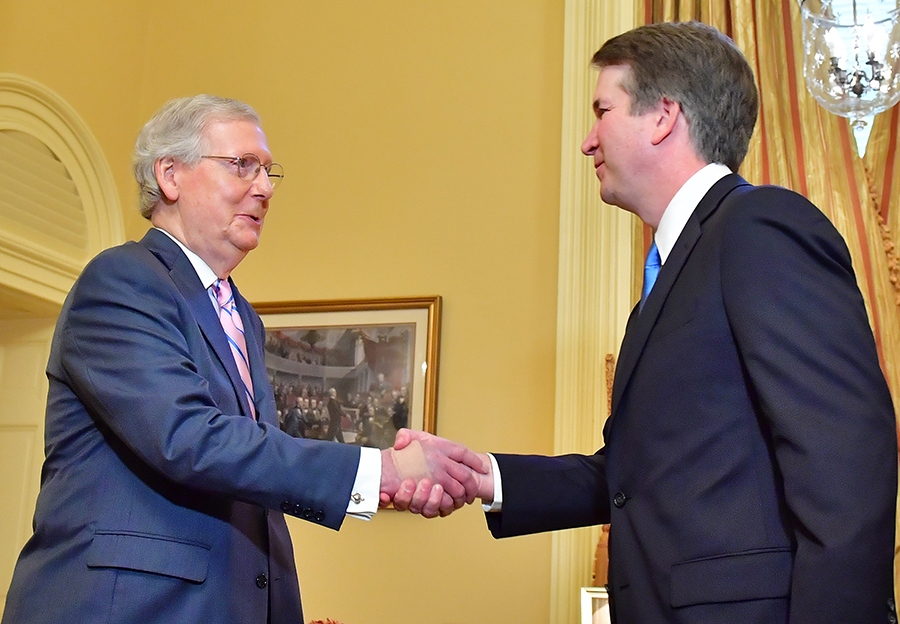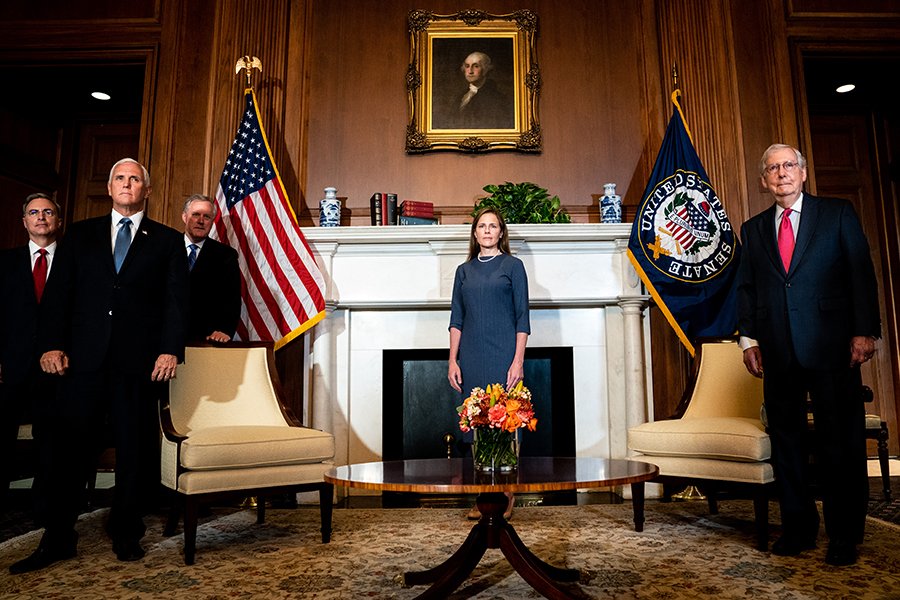This summer, those who believe in the sanctity of human life celebrated the demise of
Roe v. Wade, the 1973 Supreme Court ruling that forced abortion on demand upon an entire nation, cost more than 60 million unborn lives and scarred millions of souls.
But what few people have noted is that without the unrelenting force of one pro-life senator from Kentucky, Roe v. Wade would still stand, and federally protected abortion would still be the law of the land. Most critically, had then-Senate Majority Leader Mitch McConnell not announced, without consulting fellow senators, that he would not consider Obama’s nomination of Merrick Garland to the high court in 2016, the composition of the Supreme Court would be fundamentally different.
“Leader McConnell’s vision and courage have been critical to some of the biggest pro-life victories: the successful confirmation of three outstanding Supreme Court justices and over 200 federal court judges,” said Marjorie Dannenfelser, president of Susan B. Anthony Pro-Life America. “Without his unwavering determination, we wouldn’t be in this new Dobbs era, poised to save countless lives across the country through the democratic process. Strong pro-life leaders like McConnell will continue to be instrumental in the next, new phase of the pro-life movement.”

Rena Lindevaldsen, law professor at Liberty University Law School in Lynchburg, Virginia, told Decision that McConnell knew what was at stake in holding the line on Garland: If elected president, Donald Trump would likely nominate one or more conservatives to the high court who could potentially make generationally significant decisions.
“McConnell hoped that Trump nominees would understand that Roe v. Wade, which resulted in the deaths of more than 60 million unborn babies, constitutionally and morally, had to be overturned,” Lindevaldsen said. “As a direct result of McConnell’s decision to stand his ground in the face of immense public outcry and political pressure, President Trump was able to appoint Neil Gorsuch, followed by justices Kavanaugh and Coney Barrett. All three voted to overturn Roe v. Wade.
“That would not have happened if it weren’t for voters who put Republicans in control of the Senate and President Trump in office. Elections have consequences, and sometimes those consequences are life or death.”
When Donald Trump took the oath of office in 2017, he faced a vacancy on the Supreme Court following the death of conservative stalwart Antonin Scalia and McConnell’s refusal to consider the nomination of Garland.
McConnell weathered a storm of criticism for that refusal, and then accusations of hypocrisy when he fast-tracked the confirmation of Trump nominee Amy Coney Barrett in the final weeks before the 2020 election.
But McConnell has explained the historical precedent for not acting on the Garland nomination. When President Obama nominated Garland in 2016, the opposite party controlled the Senate. “Since the 1880s,” he said in 2020, “no Senate has confirmed an opposite-party president’s Supreme Court nominee in a presidential election year.”
Indeed, after evaluating the history of Supreme Court nominations, Dan McLaughlin of National Review concluded: “Senate Republicans, in stopping the Garland nomination, may have used different tools than past Senate majorities, but they acted in accordance with the dominant Senate tradition in election-year nominations since 1828, and did not ‘steal’ a Supreme Court seat.”

The Senate’s rejection of Garland—led by McConnell—and the opportunity for Trump to nominate three conservative, originalist judges, has reshaped the high court. Even with the more moderate conservatism of Chief Justice John Roberts, who voted with the liberal wing of justices on the Roe question this year, solid conservatives hold a 5-4 advantage. That advantage proved crucial in the Dobbs v. Jackson Women’s Health Organization ruling that led to the overturning of Roe.
And if Garland had been confirmed after his nomination by President Obama? Many, after all, described him as a moderate who might not side with the liberal wing on all matters.
“There is no question that Garland would have voted to uphold the abortion decisions,” said Mat Staver, founder and chairman of Liberty Counsel. “The real question is not a label of conservative, moderate or liberal, but what matters is judicial philosophy and commitment to the Constitutional text and history. Garland is not a constitutionalist.”
Photo: Ron Sachs/CNP/Splash News/Newscom
